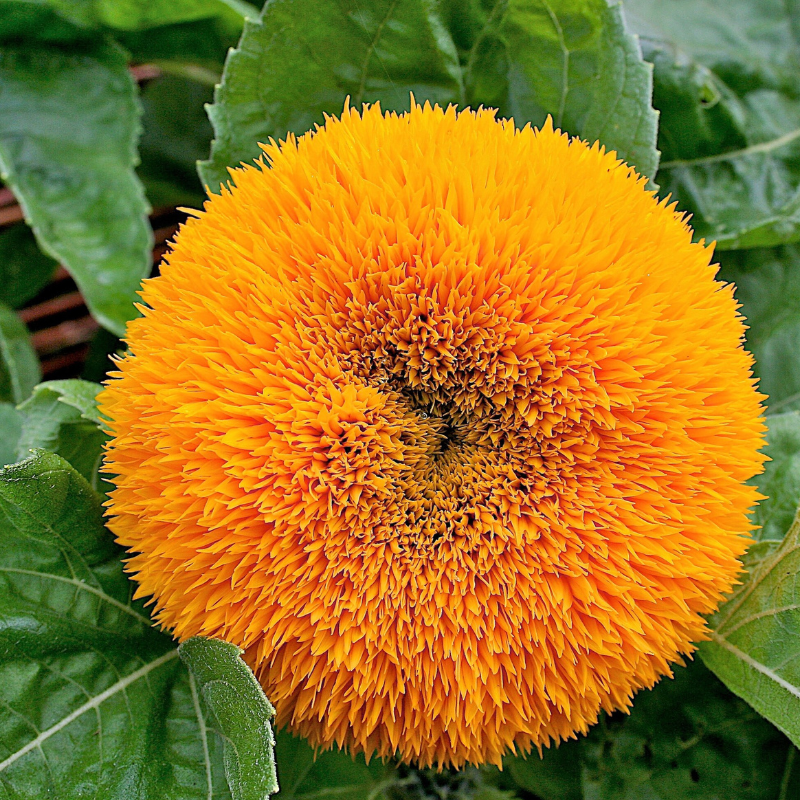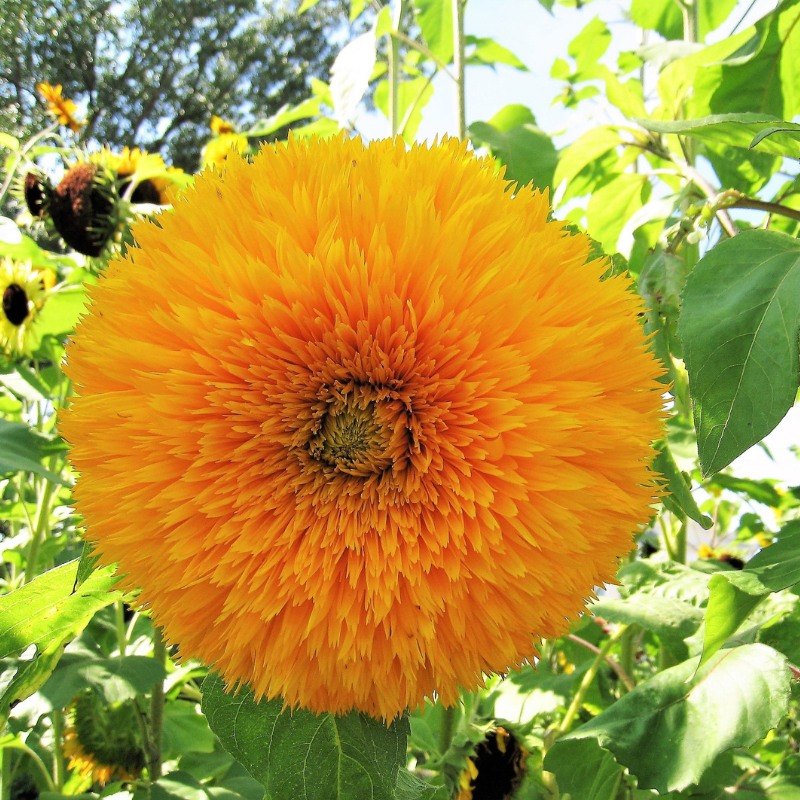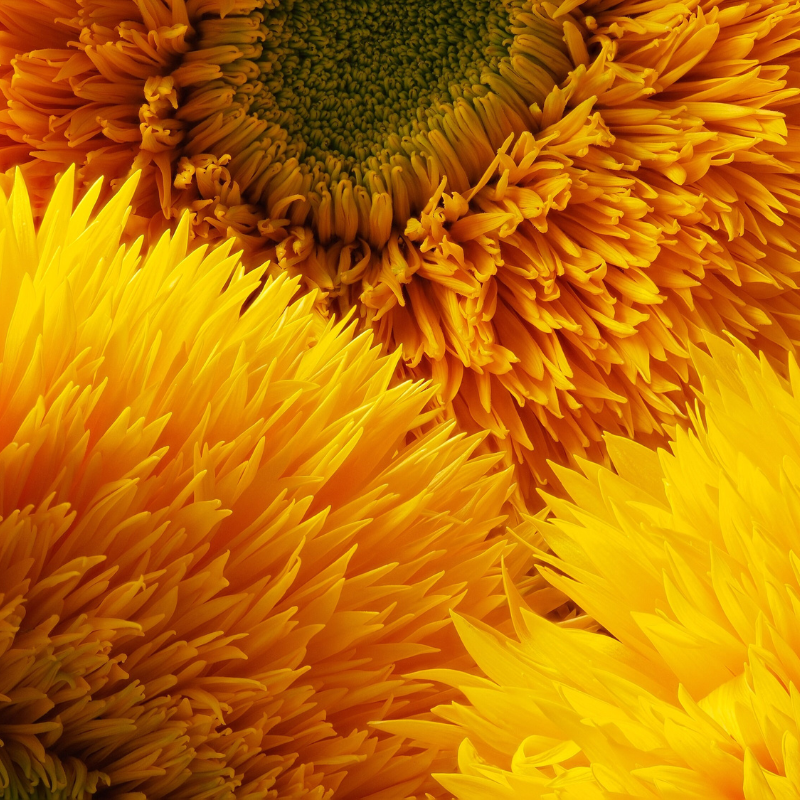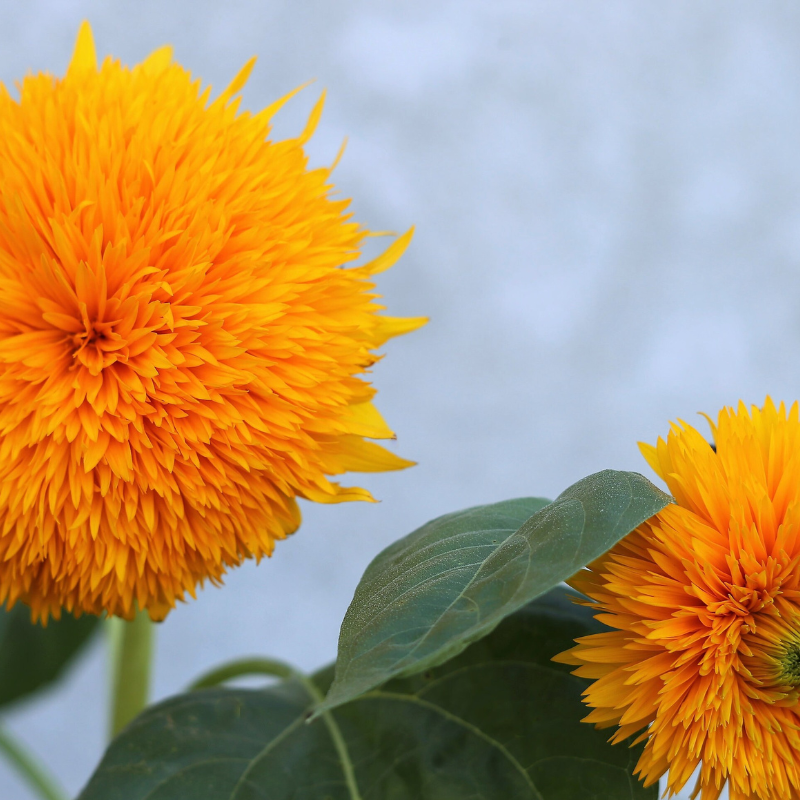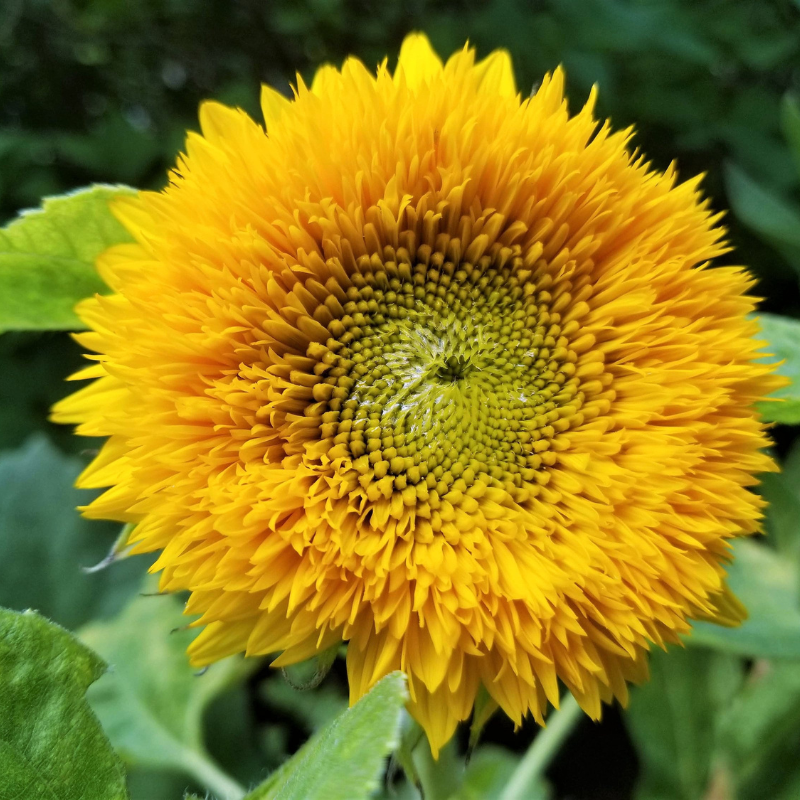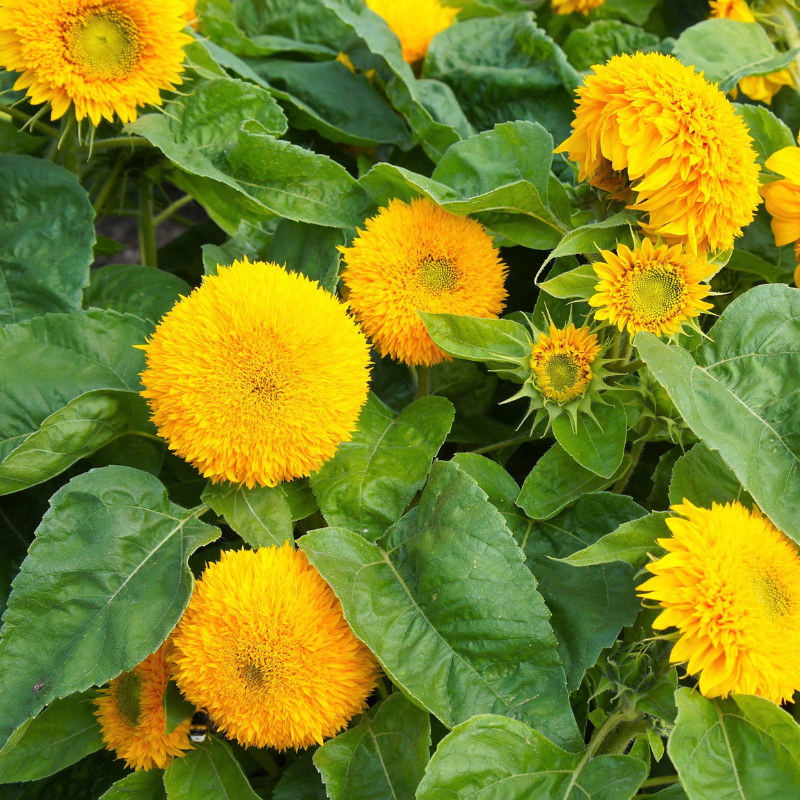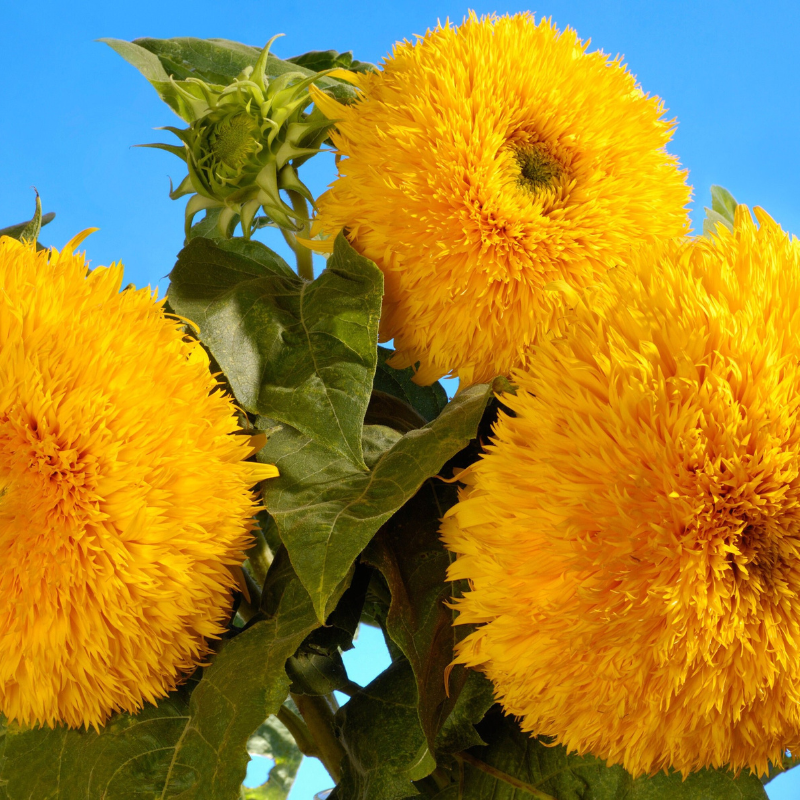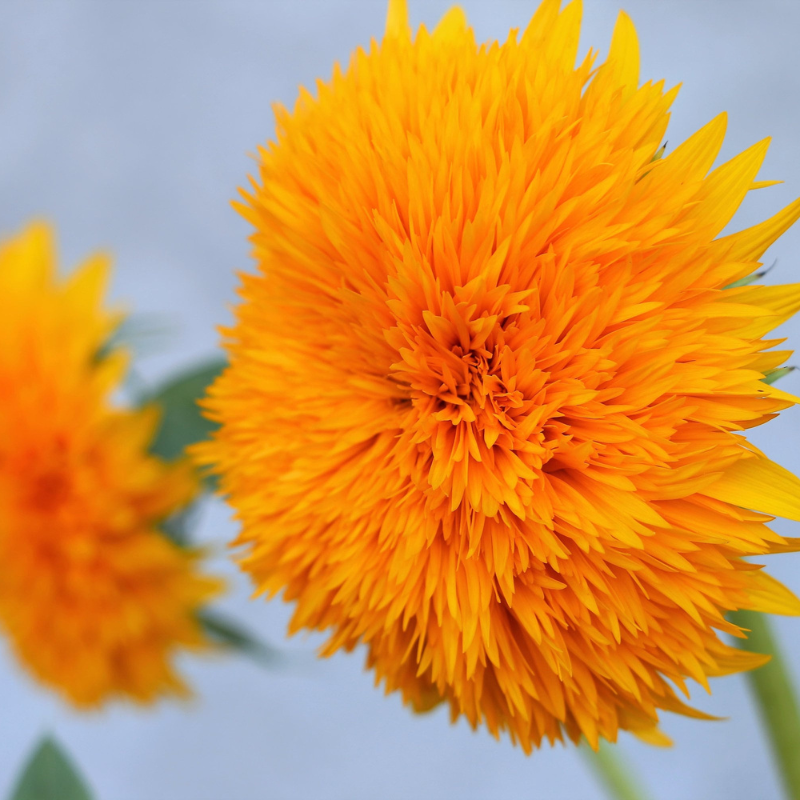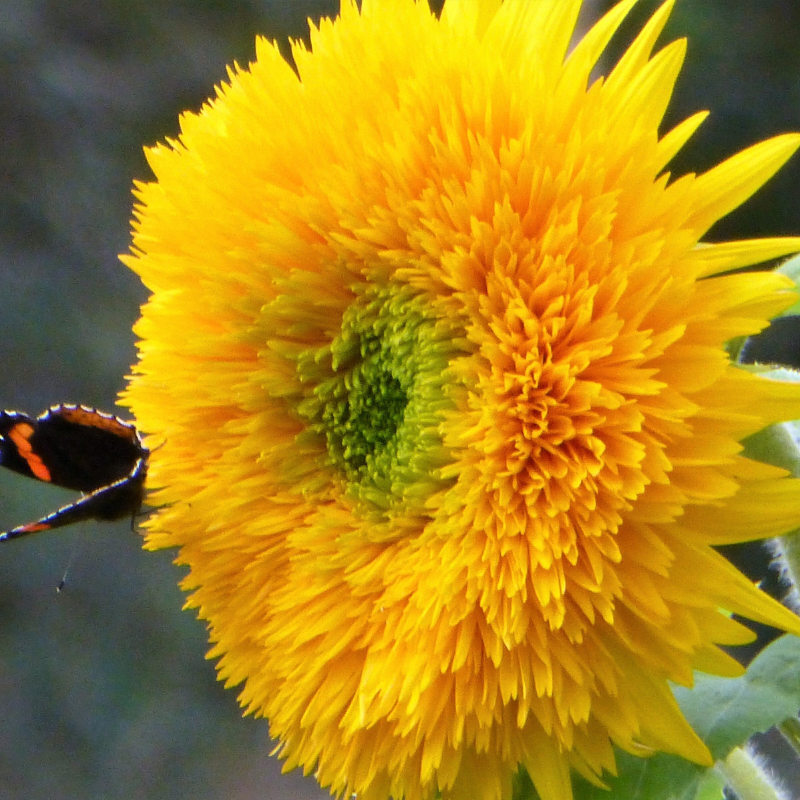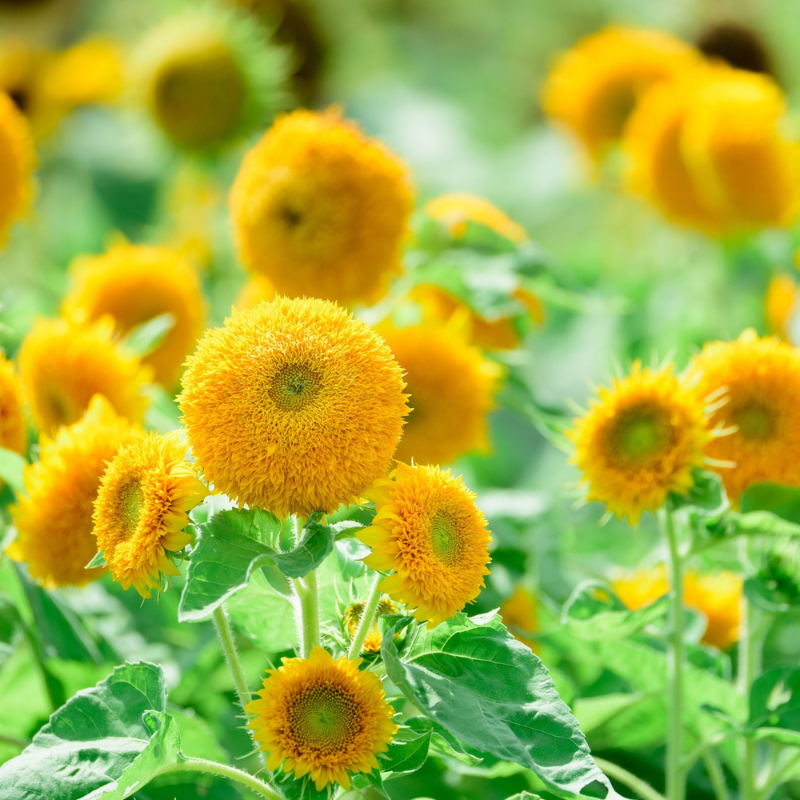- Historical context: Sunflowers, including the Sungold variety, are native to North America and were first domesticated by Indigenous peoples thousands of years ago.
- Geographical origination: North America is the original home of the sunflower, and it spread to the rest of the world through exploration and trade.
- Relevant cultural significance: Sunflowers have been used in various cultures for their aesthetic beauty, as a symbol of adoration and loyalty, and for their edible seeds.
- Time period of discovery: Sunflowers were discovered by Europeans in the 16th century, but they had been cultivated by Indigenous peoples in North America for thousands of years prior.
- Original habitat: Sunflowers are native to prairies and dry, open areas.
- Notable historical uses: Historically, sunflowers have been used for their oil, as a food source, and in traditional medicine.
- Ideal temperature range: Sunflowers prefer warm conditions and grow best in temperatures between 70-85°F (21-29°C).
- Soil type: Sunflowers prefer well-drained, nutrient-rich soil. They are quite hardy and can tolerate poorer soils.
- Sunlight requirements: Sunflowers need full sun, with at least six hours of sunlight per day, but more is better.
- Watering needs: Water sunflowers regularly, but be careful not to overwater. The soil should be moist, but not waterlogged.
- Planting season: Sunflowers should be planted in the spring, after the last frost has passed.
- Germination time: Sunflower seeds typically germinate in 7-10 days.
- Growth cycle duration: Sunflowers usually reach maturity and begin to flower in 80-120 days, depending on the variety and conditions.
- Common pests and diseases: Sunflowers can be affected by pests like aphids and birds, and diseases such as rust, mildew, and various fungal infections.
- Companion planting advice: Sunflowers pair well with cucumbers, corn, and beans. They should not be planted with potatoes or other plants that require a lot of water.
- Common challenges and solutions: One common challenge is tall sunflowers falling over. This can be mitigated by planting in a sheltered location or providing a stake for support.
- Nutritional values: Sunflower seeds are high in vitamin E, selenium, and magnesium. They also provide a good source of fiber and healthy fats.
- Health benefits: Eating sunflower seeds can help lower cholesterol and blood pressure, reduce inflammation, and boost your mood.
- Culinary uses: Sunflower seeds can be eaten raw or roasted, used in baking, or ground into a butter. Sunflower oil is also a popular cooking oil.
- Medicinal uses: Traditionally, sunflower seeds have been used to help soothe coughs and as a diuretic. The oil has been used topically for skin health.
- Other unique advantages: Sunflowers are also beneficial for the garden, as they attract pollinators and can help detoxify the soil.
